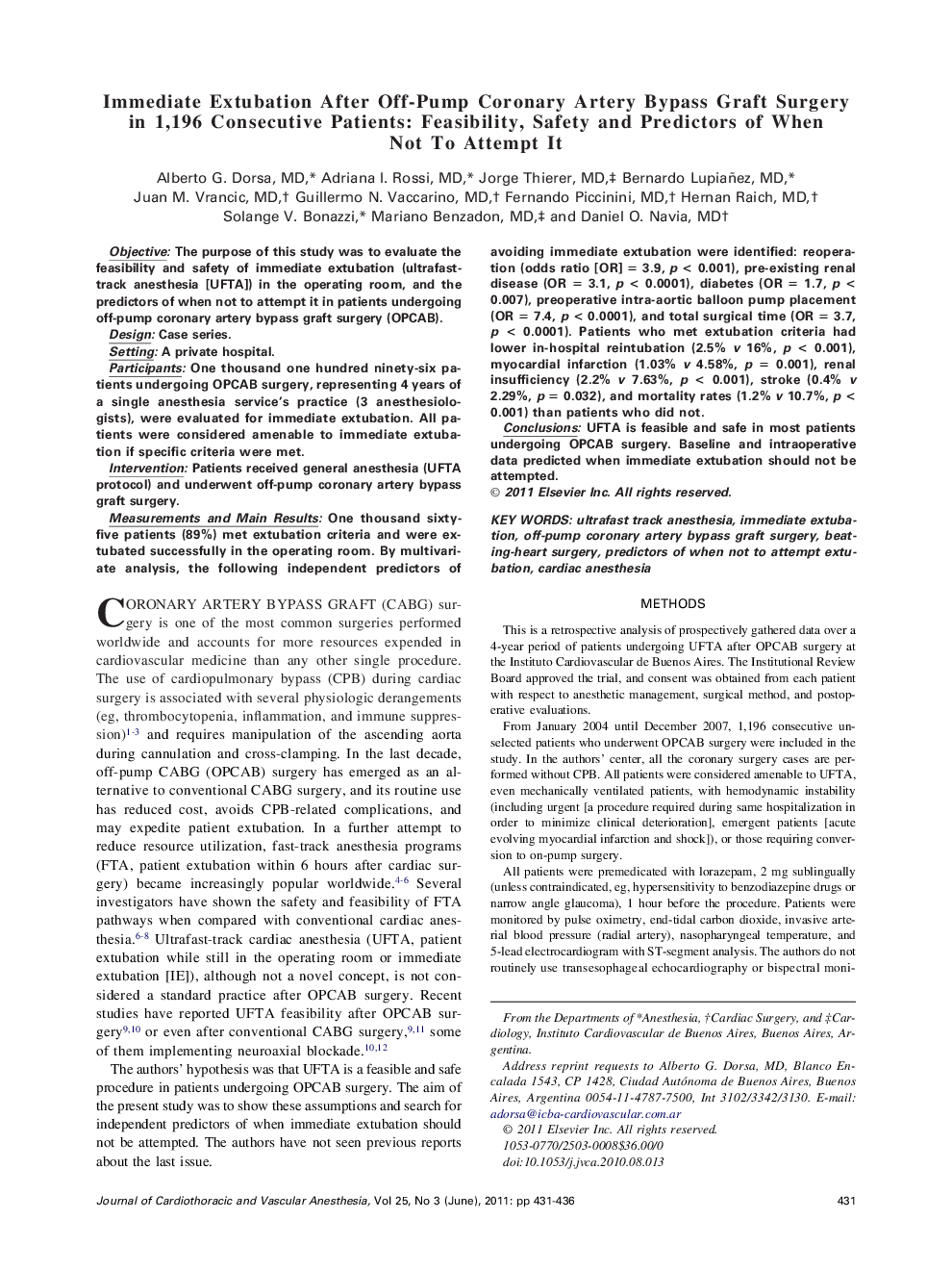| Article ID | Journal | Published Year | Pages | File Type |
|---|---|---|---|---|
| 2761158 | Journal of Cardiothoracic and Vascular Anesthesia | 2011 | 6 Pages |
ObjectiveThe purpose of this study was to evaluate the feasibility and safety of immediate extubation (ultrafast-track anesthesia [UFTA]) in the operating room, and the predictors of when not to attempt it in patients undergoing off-pump coronary artery bypass graft surgery (OPCAB).DesignCase series.SettingA private hospital.ParticipantsOne thousand one hundred ninety-six patients undergoing OPCAB surgery, representing 4 years of a single anesthesia service's practice (3 anesthesiologists), were evaluated for immediate extubation. All patients were considered amenable to immediate extubation if specific criteria were met.InterventionPatients received general anesthesia (UFTA protocol) and underwent off-pump coronary artery bypass graft surgery.Measurements and Main ResultsOne thousand sixty-five patients (89%) met extubation criteria and were extubated successfully in the operating room. By multivariate analysis, the following independent predictors of avoiding immediate extubation were identified: reoperation (odds ratio [OR] = 3.9, p < 0.001), pre-existing renal disease (OR = 3.1, p < 0.0001), diabetes (OR = 1.7, p < 0.007), preoperative intra-aortic balloon pump placement (OR = 7.4, p < 0.0001), and total surgical time (OR = 3.7, p < 0.0001). Patients who met extubation criteria had lower in-hospital reintubation (2.5% v 16%, p < 0.001), myocardial infarction (1.03% v 4.58%, p = 0.001), renal insufficiency (2.2% v 7.63%, p < 0.001), stroke (0.4% v 2.29%, p = 0.032), and mortality rates (1.2% v 10.7%, p < 0.001) than patients who did not.ConclusionsUFTA is feasible and safe in most patients undergoing OPCAB surgery. Baseline and intraoperative data predicted when immediate extubation should not be attempted.
